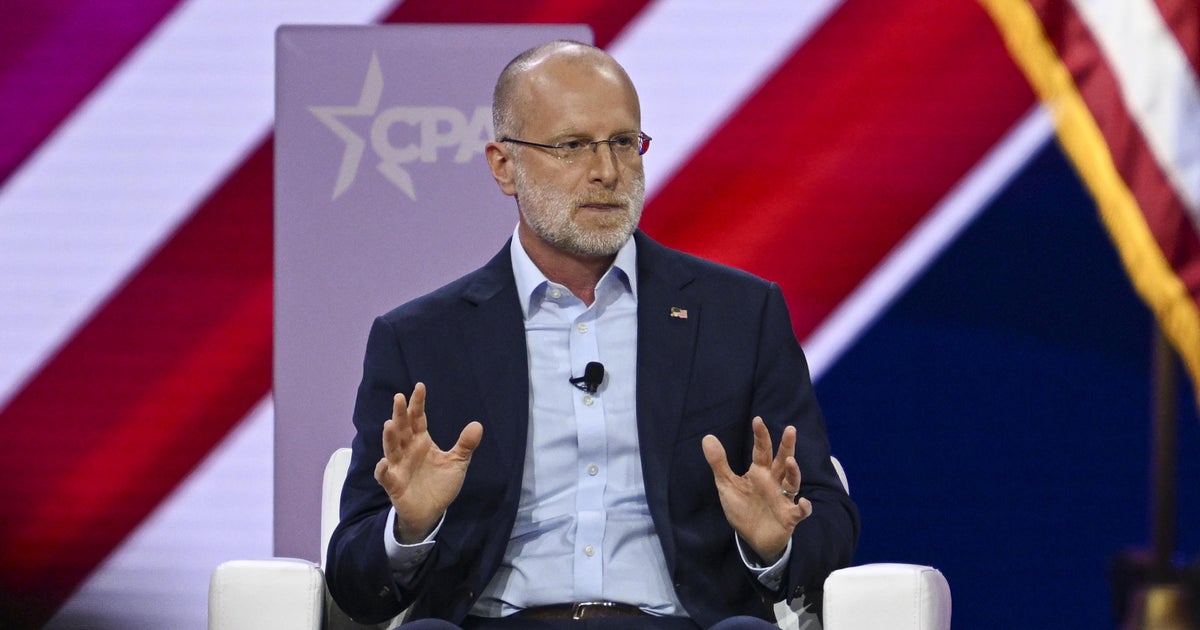President Trump's tweet preempting the jobs report breaks years of protocol
The May hiring report released Friday morning was unusually strong, beating expectations on nearly every metric: New jobs created, unemployment and wage growth.
But many pockets of the internet were already prepared for a blockbuster jobs number-- since President Donald Trump teased the positive report in a tweet posted more than an hour before its 8:30 a.m. release.
"Looking forward to seeing the employment numbers at 8:30 this morning," Mr. Trump tweeted at 7:21 a.m.
The tweet sent both stock market futures and bond yields higher before those markets opened Friday
Mr. Trump was pre-briefed on the report
The president, through the Council of Economic Advisers, often receives the employment figures the night before their public release. Larry Kudlow, Mr. Trump's chief economic adviser, confirmed that he briefed the president Thursday night, according to "law and custom."
"I tracked him down on Air Force One, I told him the numbers...that was it," Kudlow said on CBNC. On Mr. Trump's tweet, he said, "I don't think he gave anything away."
The law in this case refers to a 1985 rule that spells out how agencies release data. "The agency will provide prerelease information to the President, through the Chairman of the Council of Economic Advisers, as soon as it is available," the rule says. It also specifies that, except for people tapped to explain it to the press, "employees of the Executive Branch shall not comment publicly on the data until at least one hour after the official release time."
Some Obama administration officials immediately lambasted Mr. Trump for his comment, likening it to "inside information" that can move financial markets to the benefit of speculators. Jason Furman, who chaired Mr. Obama's Council of Economic Advisers, said Mr. Trump should no longer have advance access to the numbers.
Austan Goolsbee, another Obama-era CEA chair, said the information was classified. "If it was anyone but the president, you would have just gotten yourself a nice appointment with the FBI or the SEC," Goolsbee said on CNBC's "Squawk Box."
Larry Summers, a former Clinton administration Treasury secretary and a former Obama administration director of the National Economic Council, claimed that the tweet would have led to an investigation under a different presidency.
A break with precedent
It's not the first time that a member of Mr. Trump's administration has broken the rule on commentary about sensitive economic data. Former Press Secretary Sean Spicer and Mr. Trump himself have run afoul of it, touting strong employment numbers shortly after their release. But this appears to be the first time an administration member has commented on the numbers before they were public.
Kudlow maintained Friday that the president followed the rule by not releasing the numbers, a position also taken by Press Secretary Sarah Huckabee Sanders in conversation with CBNC.
The market clearly understood the tweet as a good sign, with stock futures and bond yields moving up immediately.
The jobs report, which is released on the first Friday of every month, is closely guarded precisely because it can have such a strong effect on markets. But its effects are unpredictable: Strong hiring numbers could cause stock prices to rise, reflecting investors confidence in the overall economy. But numbers that are very strong could also spook investors if they anticipate that the central bank will respond to an overheating economy by raising interest rates.
Early in Mr. Obama's administration, his press secretary tried to calm observers by hinting the day before the release of the jobs report that the unemployment rate could rise. In early December 2009, Robert Gibbs told reporters that he did not know what would be in the next day's monthly jobs report, but he cited another report released earlier in the week that indicated payroll numbers were going up.
(As it turned out, the unemployment rate peaked in October 2009, at 10 percent, and has steadily dropped since.)
The question of whether the president broke the rules could hinge on whether he's considered an executive branch employee. (As president, Mr. Trump does receive a salary, which he donates.) MarketWatch noted that Dwight Eisenhower used to pre-empt the jobs report, leaking it to the press before Election Day in 1954, 1956 and 1958, when the numbers were favorable.
The original rule forbidding officials from discussing economic data has its origins in the Nixon administration, according to the Bureau of Labor Statistics; it is supposed to "preserve the neutrality and objectivity of the statistics."
CBS News' Jillian Harding contributed reporting.



